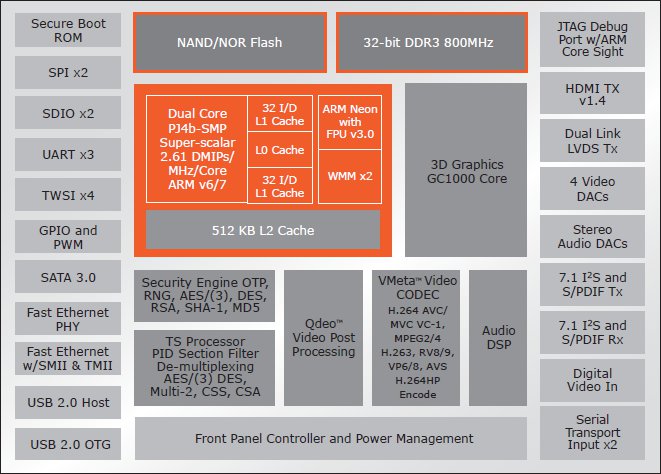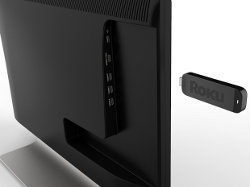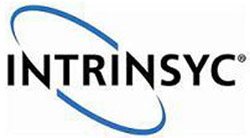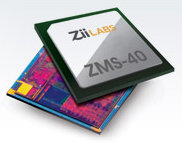Linux Torvalds announced the release of Linux Kernel 3.2 on the 4th of January: So 3.2 is out, and the merge window for 3.3 is thus officially open. I delayed 3.2 first a few days to wait for the final linux-next (“final” in the sense that that’s what I’ll fetch to decide whether something has been in linux-next for 3.3 or not), and then some more as people were coming back from holidays and sorting out some regressions. So we do have a few last-minute reverts and small fixes. Still, there’s not a whole lot of changes since -rc7 (shortlog appended), and almost all of them are *tiny*. So despite the few annoying last-minute reverts, I’m feeling pretty happy about it. Linus Linux 3.1 added support for OpenRISC, Near-Field Communication (NFC) and new power tuning tools called cpupowerutils, as well as support for Xilinx boards and i.MX53 ARD. Linux 3.2 […]
Marvell Armada 1500 Google TV Reference Design
Marvell announced that its Foresight Platform, powered by Marvell ARMADA 1500 HD Secure Media Processor System-on-a-Chip (SoC), will be officially used by Google TV (replacing Intel CE4100 SoC) and be introduced at CES 2012. The company said Google TV smart TVs, set-top boxes (STB) and blu-ray players based on its platform would be available later this year. The Foresight Platform uses Marvell’s Qdeo video processing technology designed to deliver improved 3D video, rich audio, 3D graphics and TV-friendly Web content thanks to noise reduction, de-interlacing, low bit-rate internet video enhancement and other enhancement techniques such as Adaptive Contrast Enhancement (ACE) and Intelligent Color Remapping (ICR). ARMADA 1500 (codenamed 88DE3100) contains Marvell’s ARM v6/7-compatible PJ4B SMP super-scalar dual-core CPU. The chip is designed to enable PC-like processing power to support Web browsing with support for Flash and other key technologies – with the aid of more than 6000 Dhrystone MIPS of […]
BiKN Technology Platform: 802.15.4 Wireless Sensor Network
NXP and Treehouse Labs has unveiled BiKN technology platform that uses low-power 802.15.4 wireless chip technology from NXP Semiconductors to enable the “Internet of Things” and opens new markets and applications for affordable wireless sensor and control networks. This technology allows to track “Smart Objects” tagged by wireless sensors and monitor (and possibly control) them via an application running on mobile devices, PC or Cloud servers. BiKN Technology Platform can be used in a range of applications including home and industrial automation, smart energy management, improving tracking and monitoring of equipment and inventory in retailing and hospitality, enhancing safety monitoring and security in healthcare, social services, athletics and educational environments. BiKN Technology Platform works by integrating hardware and software, operating through mobile and web-enabled devices, and leveraging IEEE802.15.4 low-power networking standards. Treehouse Labs uses the NXP JN5148 ultra low-power wireless microcontroller and the JenNet-IP open source wireless network protocol stack […]
Roku Streaming Stick HDMI/MHL Dongle
Roku has unveiled the Roku Streaming Stick – an HDMI dongle about the size of a standard USB flash drive that will simply plug into a TV to instantly transform it into a Smart TV. It basically includes everything you’d find in a Roku player (built-in WiFi, processor, memory and software) and will deliver all the channels present on the Roku platform. It will be possible to use just one remote for the TV and for streaming and no cables or power adaptor are needed. Another advantage of the Roku stick, is that when it becomes outdated and the hardware needs to be upgraded to be able to take advantage of new software capabilities, it’s possible to simply purchase a new low cost Roku Streaming Stick (or another equivalent product) without having to replace the much more expensive TV. The Roku Streaming Stick will plug into MHL-enabled HDMI ports on […]
Intrinsyc Launches OPEN-6 Platform for Freescale i.MX6
Intrinsyc Software International announced the OPEN-6 Design and Production Platform that leverages Freescale i.MX 6 multi-core Cortex-A9 processors. Intrinsyc’s OPEN-6 DPP product line will deliver a platform for device makers focused on tablets, eReaders, automotive infotainment (IVI), and industrial handhelds. The platform will include support for: Android 4.0 or Windows Mobile 6.5 Production BSP Advanced Power Management 3G and 4G communication module options, with Intrinsyc’s RapidRIL technology Combination Bluetooth, WLAN, and GPS Capacitive multi-touch display with multiple options including daylight readability Multiple high resolution cameras Full suite of sensors Device Management through Intrinsyc’s i.Device Manager The OPEN-6 DPP product line includes the following solutions: Licensable Production Package – includes production software in source format and cost optimized hardware design that can be licensed by OEM’s and ODM’s for device acceleration Development Kit – solution for application developers and device manufacturers to evaluate, develop, test, and deploy applications that utilize the […]
Ziilabs ZMS-40 Quad Core Cortex A9 SoC is now Available
Ziilabs has just announced the availability of its 100-core ZMS-40 StemCell Media processor optimized for Android tablets. The ZMS-40 combines 96 of ZiiLABS’ StemCell media processing cores with four 1.5GHz ARM Cortex-A9 CPUs. The number of StemCell Media processors has doubled compared to the dual core ZMS-20. Ziilabs’ own GPU benchmark called MandelMark shows a 2X increase in performance or a 50% reduction in power consumption. The benchmark is not yet available for download, but the company plans to release it in Q1 2012 as an apk file. This processor competes directly with the Nvidia Tegra 3 in terms of CPU and GPU performance. It may actually beat it, as it can support dual independent displays (see below for details). Here are ZMS-40 Key Features: Quad 1.5GHz ARM Cortex-A9 cores with Neon ZiiLABS flexible Stemcell media processing capabilities Low-energy SIMD architecture for high performance media acceleration 96x 32-bit floating point […]
Video Demo of XMBC on Raspberry Pi
XMBC is a free and open source (GPL) software media player and entertainment hub for digital media. Some people are currently working on porting it to the Raspberry Pi board. They posted a video demo on their forum and I uploaded the video to YouTube for those interested in seeing the progress. The video just shows XMBC booting, then accessing the menu and showing the Videocore GPU is detected. This is still work in progress, but it looks promising. Jean-Luc Aufranc (CNXSoft)Jean-Luc started CNX Software in 2010 as a part-time endeavor, before quitting his job as a software engineering manager, and starting to write daily news, and reviews full time later in 2011. www.cnx-software.com
MIPS Releases Android NDK 7m
MIPS has just announced the release of the Android Native Development Kit version 7. It has the same APIs as the Android NDK revision 7 released in November 2011 (for Android 4.0), but adds support for MIPS architecture and the MIPS ABI . The NDK is available for Windows, Linux and MacOS. The NDK allows developers to use C/C++ code either to reuse existing C/C++ code or to improve the performance over code developed with Java. Note that MIPS states that “using native code does not result in an automatic performance increase, but always increases application complexity. If you have not run into any limitations using the Android framework APIs, you probably do not need the NDK.” The NDK can be downloaded for: Windows Linux Mac You’ll also have to download the Android MIPS SDK, if you want to use the NDK. Strangely, the Mac SDK is not available for […]








